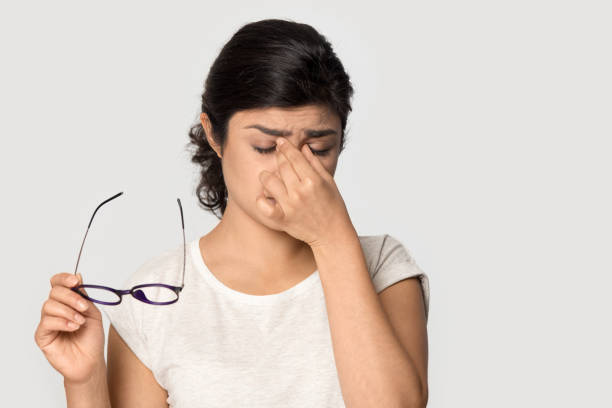Embarking on a journey toward maintaining a healthy lifestyle, one cannot underestimate the powerhouse that is sleep. This nightly ritual doesn’t merely offer respite from the day’s endeavors but is a cornerstone for maintaining the vibrancy of one’s vision. Within the scope of this article, an illumination of how rest impacts the windows to your soul—the eyes—awaits your perusal. Prepare to delve into the fascinating interplay between achieving restorative slumber and preserving the integrity of your vision.
Unveiling the Role of Rest in Visual Well-being
Contents
- 1 Unveiling the Role of Rest in Visual Well-being
- 2 The Repercussions of Skimping on Sleep
- 3 When Sleep Disorders and Eye Challenges Intersect
- 3.1 The Gamut of Sleep Abnormalities Influencing Ocular Health
- 3.2 Interpreting Symptoms and Their Ocular Impact
- 3.3 Steps Toward Amendment and Care
- 3.4 Sleep: Your Nightly Restoration for Eyesight
- 3.5 Fine-tuning Habits for Better Sleep and Vision Health
- 3.6 Times When Expert Guidance Makes a Difference in Sleep
- 4 Embracing Sleep as a Keystone for Sight

Rest’s Vital Function in Revitalizing Vision
Imagine sleep as your body’s nightly maintenance session, meticulously tending to various systems that require attention, including the care of your eyes. This period of respite allows your eyes to recuperate, detoxify, and absorb vital nutrients. It is during these quiet hours that your visual faculties receive the care they need to remain sharp and protected against daily environmental assaults.
Sleep’s Significant Role in Ocular Health
Engaging in sound sleep practices is like gifting your eyes a rejuvenating spa treatment. This downtime supports your eyes in sustaining focus, optimizing lubrication, and fostering resilience against infections. Through a routine that honors sufficient rest, you are endowed with a vision that remains robust and alert.
Revelations from Research Linking Rest and Vision Clarity
The relationships between sleep patterns and eye health are well documented in scientific circles. These studies unveil a link between steady sleep habits and a lowered risk of debilitating conditions such as glaucoma and dry eye syndrome. By committing to quality slumber, you’re effectively underwriting a future where your vision remains as keen as ever.
The Repercussions of Skimping on Sleep

Immediate Effects and Comfort Disruption
A single sleepless night can set the stage for an avalanche of ocular discomforts. Waking up to swollen eyelids or eyes that itch and burn is your body signaling a deficit in vital rest. The discomfort isn’t only irritating but can encumber your daily life by muddling your concentration and clouding your vision.
The Ripple Effect of Persistent Sleeplessness
The stakes rise significantly when infrequent sleep turns into a chronic issue. Over time, continuous sleep deprivation can propel the onset of eye diseases that might culminate in a loss of vision that is irrecoverable. This dire consequence emphasizes the need to value your nightly rest.
Real-world Encounters with Sleep Negligence
Stories from individuals navigating the consequences of sleep neglect offer vivid testimony to the risks involved. Conversations with people juggling long hours in front of screens with little rest reveal a consistency of eye strain symptoms and visual discomfort. These are cautionary chronicles that highlight the cost of ignoring our bodies’ need for recuperation through sleep.
When Sleep Disorders and Eye Challenges Intersect

The Gamut of Sleep Abnormalities Influencing Ocular Health
Not all sleep disturbances are benign. Common sleep disorders such as insomnia or sleep apnea hold the potential to affect your ocular health adversely. Besides siphoning precious rest, they also pose a risk of escalating eye strain and intraocular pressure that may spiral into serious eye conditions.
Interpreting Symptoms and Their Ocular Impact
A sleep disorder’s symptoms often become direct stressors for your visual system. Complications like sleep apnea, which disrupts breathing, can place undue stress on the optic nerve, potentially leading to damage. Additionally, the lack of reparative sleep phases means that your eyes miss out on critical recovery processes.
Steps Toward Amendment and Care
Addressing sleep disorders calls for an assertive stance in managing them at their root. Medical counsel and intervention may not only enrich your sleep quality but can serve as a fortification for your vision. Whether it’s adapting your lifestyle, embracing medical therapies, or considering surgical correction, proactive choices can spell the difference between compromised vision and visual health.
Sleep: Your Nightly Restoration for Eyesight
Craving a night of deep sleep that leaves you refreshed? Consider embedding these practices into your nights:
- Establish a sleep pattern through a comforting evening ritual, gently informing your body it’s time to rest.
- Stick to a sleep timetable that’s consistent, tuning in to the rhythm of your biological clock.
- Craft a snooze sanctuary — your bedroom should be dimly lit, calm, and comfortably cool.
Fine-tuning Habits for Better Sleep and Vision Health
Tweak your daily rhythm to nurture both restful sleep and vigilant eyes:
- Dial down electronics use before bedtime, easing the transition into sleep and being gentle on your eyes.
- Prioritize hydration, fortifying your body and eye moisture naturally.
- Regular bouts of exercise assist in managing stress and ocular pressure, all while fostering deeper sleep.
Times When Expert Guidance Makes a Difference in Sleep
There are moments when only a seasoned professional’s aid will do to shepherd you toward better rest:
- Approach a sleep mentor to navigate personal sleep challenges, embracing customized strategies for rest.
- With a discerning eye, consider sleep-enhancing medicines or melatonin under watchful medical supervision.
- Venture into the world of optic therapies or bespoke eyewear to address specific eye strain and make bedtime more inviting.
Embracing Sleep as a Keystone for Sight

In rounding off our discourse, sleep must be recognized as an essential fragment, not just rest, but a guardian of our optical health. The virtues of sleep extend beyond the night; it battles the onset of future vision ailments and preserves the keenness of sight. By internalizing the necessity of sleep, heeding the cautions of scarcity, and engaging with sleep irregularities, you set the stage for vibrant ocular health. As evening shades arrive, perceive the sojourn into sleep not as a cessation but as an essential contribution to your lifelong journey of beholding the world in all its clarity and color.

